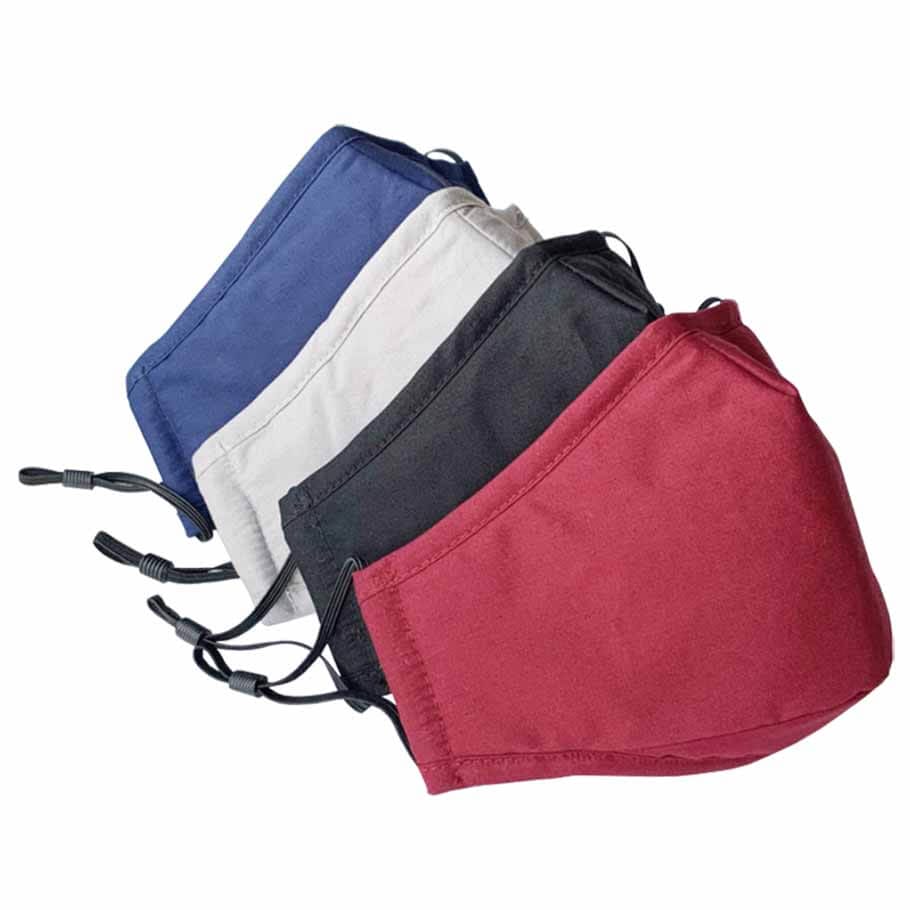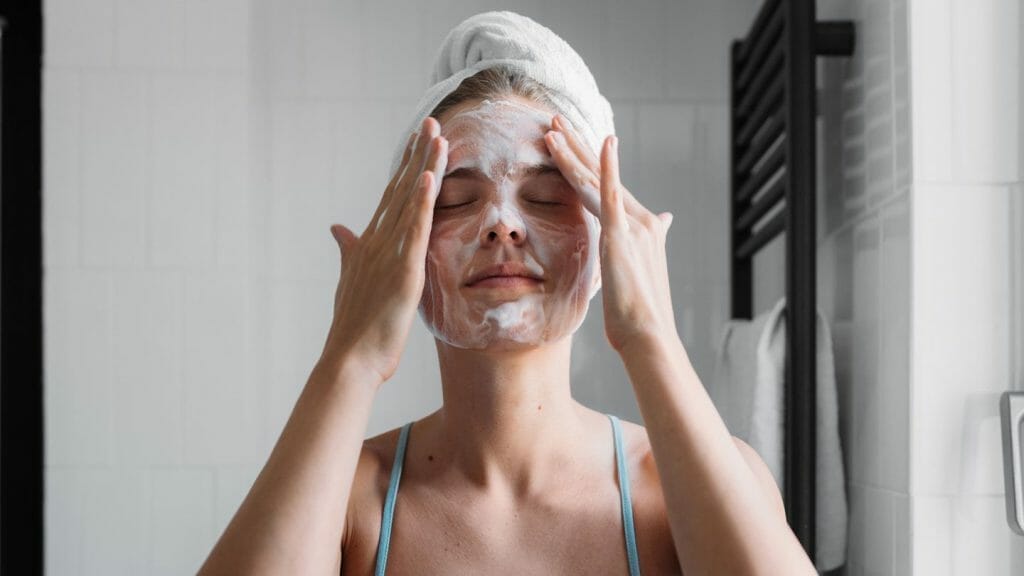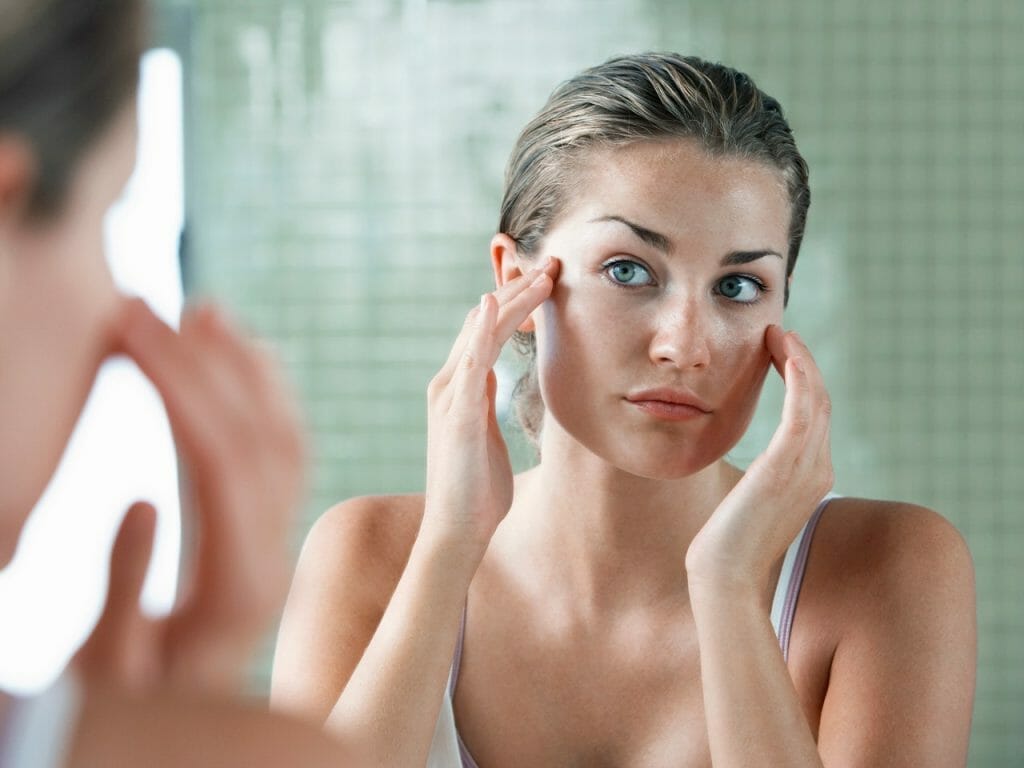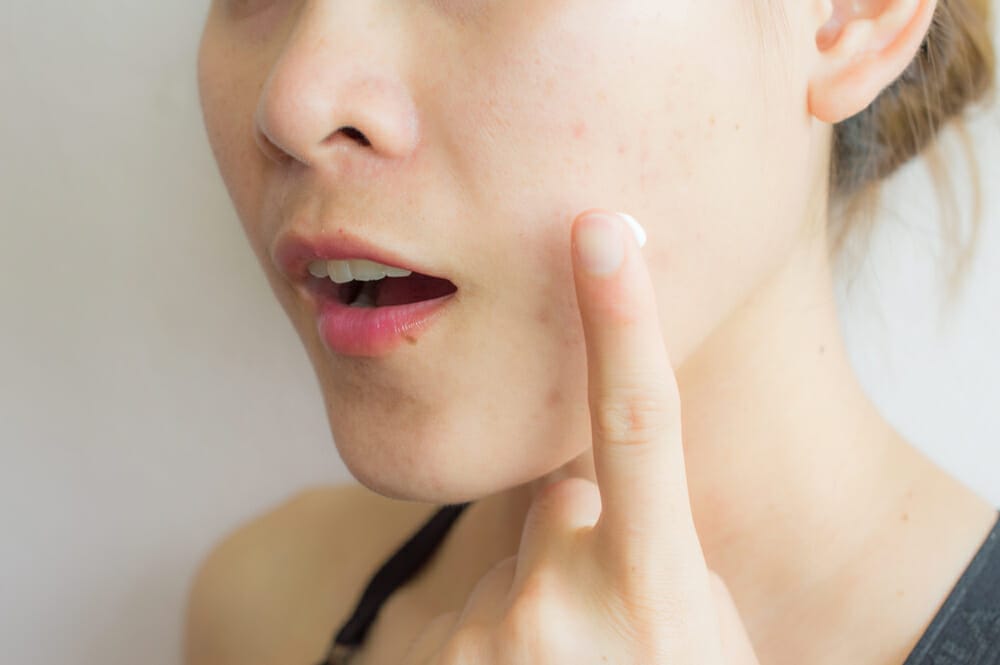Essential Skincare when Using Face Masks
Shelter-in-place restrictions is also loosening up in some areas, however the Center for Disease Control and Prevention still recommends sporting a face covering if you leave home to help curb the spread of COVID-19. Unfortunately—as several medical professionals and essential employees already know—wearing masks will create mayhem on your skin. whether or not you sew your own mask, get one online or go the DIY route with a bandana and hair-ties, keeping your nose and mouth covered will go along with some unfortunate side effects: soreness, irritation, redness, even bruising or breakouts in some cases. While the masks themselves may not be heavy, the pressure they create is concentrated on a small area of skin due to the small surface area of the mask’s edge. For example, a person on a thin sheet of ice would want to lie down to distribute their weight over a large area. By standing, they concentrate their entire body weight on the area of ice under their feet, risking the ice breaking and falling in. An N-95 respirator tightened onto the face puts all pressure onto the soft tissue in contact with the mask’s edge. The Tropika Club team rounded up some tips for taking care of your skin once you’re sporting a protective mask.
Table of Contents
- No Time to Read? Here’s a Snappy Summary of This Article
- Choose a cotton mask
- Wash your face (and your mask) Regularly
- Protect your skin from unnecessary friction
- Avoid make-up if you are having breakouts
- Treat breakouts with the best TLC
- Conclusion
- Frequently Asked Questions (FAQ)
- Meanwhile, Check Out Tropika Club’s Ecosystem of Websites
No Time to Read? Here’s a Snappy Summary of This Article
- Choose a cotton mask: Cotton masks are more breathable and gentle on your skin than synthetic ones. They can reduce the risk of irritation, inflammation and acne caused by wearing a mask for long periods.
- Wash your face (and your mask) regularly: Washing your face before and after wearing a mask can help remove dirt, oil and bacteria that can clog your pores and cause breakouts. Washing your mask after each use can also prevent the accumulation of germs and dirt on the fabric.
- Protect your skin from unnecessary friction: Friction from the mask can damage your skin barrier and cause dryness, redness and sensitivity. To prevent this, apply a moisturiser or a barrier cream before wearing a mask. You can also use products with soothing ingredients like aloe vera, chamomile or green tea to calm your skin.
- Avoid make-up if you are having breakouts: Make-up can worsen your acne by trapping more oil and bacteria under the mask. If you need to wear make-up, opt for light and non-comedogenic products that won’t clog your pores. You can also use tinted moisturisers or sunscreens instead of foundation.
- Treat breakouts with the best TLC: If you have acne due to wearing a mask, do not pick or squeeze your pimples as this can cause scarring and infection. Instead, use gentle cleansers, toners and moisturisers that are suitable for your skin type. You can also use spot treatments with ingredients like salicylic acid, benzoyl peroxide or tea tree oil to reduce inflammation and kill bacteria. If your acne is severe or persistent, consult a dermatologist for professional advice and treatment.
Choose a cotton mask
Unless you’re a healthcare employee on the front lines, the Center for Disease Control and Prevention recommends wearing fabric face coverings (save the N95 and surgical masks for those that actually need them). Face masks made of tightly plain-woven cotton rather than artificial material are soft, breathable and less possible to rub against your skin and cause rash and irritation. Another option: search for a mask with an internal pocket so you’ll be able to slip an additional filter (like a coffee filter) inside for extra protection.
When shopping for face masks, cotton may be the most comfortable and easiest to fold up and carry around in your pocket. Some have a filter pouch. Masks that use thicker material and designs with more layers might trap larger particles you accidentally eject through talking, coughing or sneezing, but they may also be warmer to wear. Whichever fashion you pick, the mask you buy desires to be wide sufficient to cover your nostril and chin, and must be snug sufficient no longer to create gaps. A tight suit will help maintain out massive particles that travel via the air, like from sneezes.

Wash your face (and your mask) Regularly
A properly fitted mask ought to come in direct contact with your skin, making it the proper place for sweat, dirt, and oil to create up. That’s why it’s vital to scrub your face with a mild, pH-balanced formulation before and after putting on your mask. If you’re using a do-it-yourself textile mask, you ought to wash it frequently, because it is also absorbing your skin’s natural oils. (Fabric softeners and scented detergents may be irritating, therefore contemplate skipping them when washing.)
Wash your face mask every day for the same reason you regularly wash your other clothes. Otherwise it will get contaminated with anything in the environment, like bacteria, viruses, and fungi. “And if you’re not regularly washing it, it could itself contaminate other things you leave it with every time you take it off.” In other words, if the mask carries the virus, those viral particles could end up on surfaces in your home.

Read Also
Top 10 Best Body Washes in Singapore
Protect your skin from unnecessary friction
If your mask is rubbing your skin raw, use an ointment or salve to shield sensitive areas from friction and chafing. . And for those (heroes) who need to wear N95 masks, keep hydrocolloid bandages handy. They shield cuts and abrasions from tightly fitting N95 masks and can help the wounds heal.

Avoid make-up if you are having breakouts
Face masks produce a warm, wet setting for your skin which will have an effect on sebum production and cause clogged pores and breakouts. If you’re noticing skin condition around your nose, mouth, and chin, try minimising the makeup you wear beneath your mask—especially foundation and concealer. anything above the mask, of course, is target.

Treat breakouts with the best TLC
It may be tempting to bring out the large guns once a whitehead pops up, however maintaining a healthy skin barrier is particularly vital during these times. Skip harsh acne treatments and take soothing ingredients to calm redness and irritation. salicylic acid may be a sensible choice for its ability to penetrate into clogged pores and cut back inflammation. protect active zits below your mask with acne patches—no one can see them, anyway!

Conclusion
We hope you found this article helpful and learned some tips on how to take care of your skin when using face masks. Wearing a mask is important to protect yourself and others from the coronavirus, but it can also cause some skin issues if you don’t follow the right skincare routine. That’s why we recommend you to choose a cotton mask, wash your face and your mask regularly, protect your skin from friction, avoid make-up if you have breakouts, and treat your acne with the best TLC. By following these simple steps, you can keep your skin healthy and happy while wearing a mask.
At Tropika Club Magazine, we are always looking for ways to help you look and feel your best. We know that skincare is not only about products, but also about lifestyle, habits and attitude. That’s why we share with you the latest trends, tips and tricks on beauty, wellness and lifestyle. Whether you need advice on how to deal with maskne, how to choose the best facial treatments, or how to pamper yourself at home, we have got you covered. You can also check out our Tropika Club Deals platform to find the best deals and discounts on beauty and wellness services near you. So don’t forget to subscribe to our newsletter and follow us on our social media channels to stay updated with our latest posts and offers. Thank you for reading and stay safe!

Frequently Asked Questions (FAQ)
Q: What is maskne and how can I prevent it?
A: Maskne is a term for acne caused by wearing a face mask. It happens when the mask traps dirt, oil, sweat and bacteria on your skin, leading to clogged pores and inflammation. To prevent maskne, you should wash your face before and after wearing a mask, use a gentle cleanser and a hydrating moisturiser, avoid wearing makeup under the mask, and change your mask regularly.
Q: What are the best types of face masks for my skin?
A: The best types of face masks for your skin are those that are breathable, comfortable and fit well. You should avoid synthetic materials that can trap heat and moisture and irritate your skin. Instead, opt for soft, natural fabrics like cotton or silk that can reduce friction and allow your skin to breathe. You can also look for masks that have antimicrobial properties or filters for extra protection.
Q: How often should I wash my cloth mask?
A: You should wash your cloth mask after each use or at least once a day. You can wash it by hand or in the machine with mild detergent and hot water. Make sure to rinse it well and dry it completely before wearing it again. You can also iron it to kill any remaining germs.
Q: What are some skincare products that can help me with mask-related skin issues?
A: Some skincare products that can help you with mask-related skin issues are:
- Cleansers: Use a gentle cleanser that can remove dirt, oil and bacteria without stripping your skin of its natural moisture. You can try the Fresh Soy Face Cleanser or the Caudalie Vinopure Purifying Gel Cleanser from Sephora Singapore.
- Moisturisers: Use a hydrating moisturiser that can protect your skin barrier and prevent dryness, irritation and inflammation caused by the mask friction. You can try the Fresh Rose Deep Hydration Face Cream or the Laneige Water Bank Hydro Cream EX from Sephora Singapore.
- Masks and Treatments: Use a mask or a treatment once or twice a week to exfoliate, nourish and soothe your skin. You can try the Fresh Rose Face Mask or the Fresh Vitamin Nectar Glow Face Mask from Sephora Singapore.
- Spot Treatments: Use a spot treatment to reduce inflammation and kill bacteria on your acne-prone areas. You can try the Mario Badescu Drying Lotion or the Origins Super Spot Remover Blemish Treatment Gel from Sephora Singapore.
Q: Where can I find the best deals and discounts on beauty and wellness services in Singapore?
A: You can find the best deals and discounts on beauty and wellness services in Singapore on Tropika Club Deals platform. Tropika Club Deals is Singapore’s #1 platform for beauty deals, wellness deals, fitness deals, staycation deals, travel deals, food deals and more. You can browse through hundreds of curated deals from top-rated merchants near you and book online instantly with no hidden fees. Whether you need a facial treatment, a massage, a manicure, a haircut, a yoga class, a hotel stay, a flight ticket, a restaurant voucher or anything else, you can find it on Tropika Club Deals at unbeatable prices. So don’t miss out on this opportunity to pamper yourself and save money at the same time. Visit Tropika Club Deals today and discover the best deals in town!
Meanwhile, Check Out Tropika Club’s Ecosystem of Websites

Tropika Club Magazine – Tropika Club Magazine is a Singapore-based publication that features articles on a wide range of topics with a focus on local businesses and content for the region. The magazine emphasizes supporting local businesses through its #SupportLocal initiative, which includes coverage of everything from neighborhood hawker stalls to aesthetic clinics in town. In addition to highlighting local businesses, Tropika Club Magazine also covers a variety of local content, including beauty, lifestyle, places, eats, and what’s on in Singapore and the Asia Pacific region.
Tropika Club Deals – Tropika Club Deals is a leading online deals and voucher shopping site in Singapore, offering amazing discounts on beauty, wellness, and fitness products and services. It’s the perfect platform for customers who want to discover the best deals without having to commit to a specific appointment date and time. These deals are available at major beauty stores, facial salons, hair salons, and other brands in Singapore, with no minimum spend required. Choose from guaranteed discounted deals in the categories of hairstyling, hair removal, facial & aesthetics, body slimming, brows & lashes, nails & makeup, massage & spa or fitness & wellness. Tropika Club Deals is also ideal for customers who want to buy vouchers as gifts or to use for the future. So whether you’re looking to save money on your next haircut or want to treat yourself to a relaxing massage, Tropika Club Deals has got you covered with the best voucher and coupon deals in Singapore!




